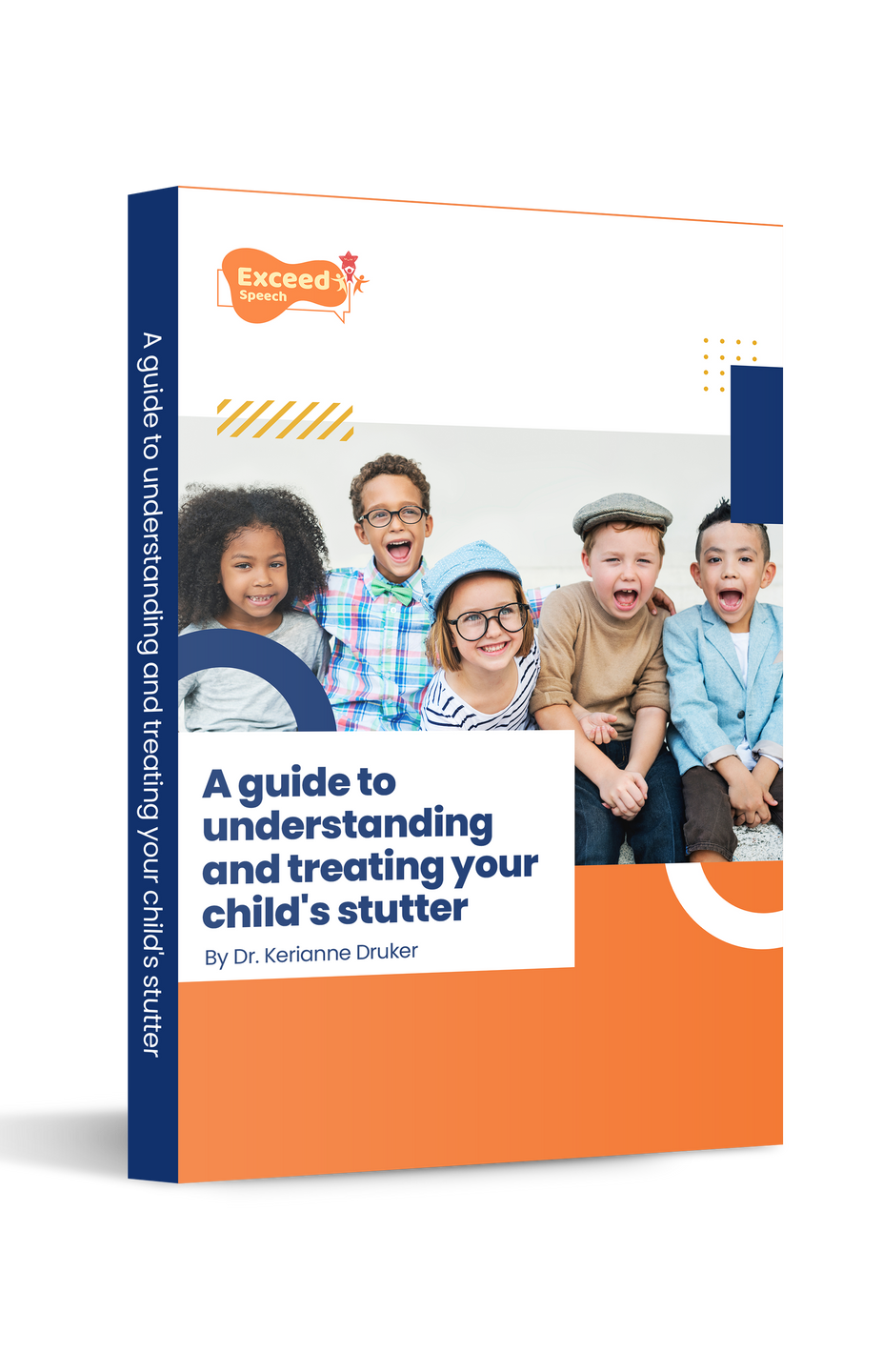Robust Theme
Dec 09, 2019 2020-04-08 7:40Robust Theme
Why should I act fast if I think my child has started to stutter?

You think your child has started to stutter. Acting fast with the appropriate next steps is the best thing to do. Download the Stuttering Checklist to learn exactly what these next steps are to give your child the best chance of overcoming their stuttering problem.
This blog article will explain WHY taking these next steps are so important. The theory and importance of early intervention will be explored. The article will also hone in on the distress felt by both parents and children who stutter, important extra factors to consider when deciding whether or not to get support.
Early intervention
Early intervention for all speech, language, and communication disorders is critical. There is so much evidence to show that treatment outcomes can be so positive when treatment is provided early. This is because of a theory called neuroplasticity. Neuroplasticity is a concept relevant to brain learning that describes the incredible malleability and plasticity of early brain networks and pathways – which is why young children have such profound learning potential. Read more about the science of early brain development here.
This is certainly relevant for the remediation of stuttering. After a child stutters for longer than 12 months – meaning their brain pathways for stuttering have been practised and embedded for this period of time - their chance of fully overcoming their stuttering reduces to less than 10%.
Distress in parents
Almost every parent I work with feels some level of distress and concern for their children when they start to stutter. Watching your child struggle with something that you don’t know how to support them with is very challenging – especially when parents are used to instinctually offering their children support with tricky things.
The research data has found that over 90% of parents who have children who stutter feel distressed by their children’s stuttering. This research has found parent reactions to include:
- Worry/ anxiety/ concern
- Uncertainty about next steps to take
- Frustration
- Being upset
- Self-blame (fear that they did something to cause the stuttering)
Distress in children
By 3 years of age, children are aware of their stuttering and can start to show some distress related to their stuttering. Research has also found children often can become frustrated by their stuttering, change or reduce their talking, and even avoid certain speaking situations.
In my clinical experience, children can become aware of their stuttering even earlier than this. A recent example I encountered was a little girl, with a fantastic ability to express herself, who had only recently turned 2. She became aware of her stuttering almost immediately - she started covering her mouth when she stuttered, and repeatedly told her mum she “can’t talk”. She also started pointing to minimise her verbal communication, and looking visibly frustrated when she couldn’t get her words out. This change in her communication was of course very upsetting for her as well as her parents – especially as she was described as such a confident and effective communicator prior to the stutter starting.
Act now
It is a privilege to be able to offer stuttering treatment for young children that has found to be more than 90% effective in eradicating this disorder. Get in touch with Dr Kerianne Druker to discuss what can be done to give your child the best chance of overcoming their stuttering problem. Early and specialised intervention will not only give your child the best chance of overcoming a potentially lifelong communication disorder, but will also quickly help to alleviate the associated distress felt by young children and their parents as a result of stuttering.
References
Langevin, M., Packman, A., & Onslow, M. (2010). Parent perceptions of the impact of stuttering on their preschoolers and themselves. Journal of Communication Disorders, 43(5), 407–423. https://doi.org/10.1016/j.jcomdis.2010.05.003.

Free eBook
A guide to understanding and treating your child’s stutter
Take a sneak peak of what the Stuttering Toolkit has to offer, and learn about the treatment principles that have proven successful for more than 90% of children who stutter.
Get Free eBook

